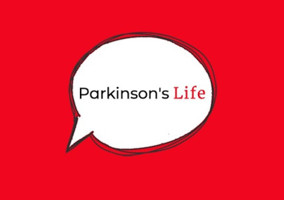It's believed that in the UK in 2021, you're never more than six metres away from someone recording a podcast.
Whether or not that's true, it's definitely the case that there are a lot of podcasts out there. While plenty hit the mark, there are many that are ignored. If you’re a charity thinking of launching a podcast, how do you make sure that you’re doing something impactful and effective, rather than just adding to the noise?
My colleagues and I at the European Parkinson’s Disease Association (EPDA) have some tips that we hope will help. The first series of our podcast Parkinson’s Life has reached more than 12,000 listeners globally since launching in 2019. Series two kicked off in May 2021, thanks to funding we’ve received from a scientific foundation – more on that later.
Planning
As I’ve written previously, every charity has to keep a strong, ongoing dialogue up with their community. Don’t be tempted to forget what your audience tell you that they need, just because the idea of a podcast seems new and exciting.
Inherently, your beneficiaries or service users probably aren’t interested in podcasts, in and of themselves. Rather, they have a range of information needs, some of which could potentially be served by a podcast. Ask yourself whether the information your audience wants might be better provided through another means. In other words, don’t launch a podcast for the sake of it.
One piece of feedback we’ve had from Speak Media, the content agency that helps us develop our podcast, is that companies can often be keen to rush into launching a podcast on the basis of having one or two stories, case studies, or pieces of information that can work in that format.
What you don’t want is an episode or two that are high quality, before they tail off in quality as initial enthusiasm wains. Ideally you want eight great ideas, and then cut them down into a six-episode series, rather than two good ideas, and then four mediocre ones. This will also allow you to create a clear plan and a defined publishing schedule, which we have found can build audience anticipation and engagement.
Once you’re a few episodes (or a whole series) down, you can look at what is resonating with your audience – which episode performed better, and why. Base future episodes on those insights.
Format
With Parkinson’s Life, we decided not to have a regular presenter, because we wanted to showcase a range of voices and put people in the Parkinson’s community – people with the condition, their families, and healthcare professionals – at the centre of the content. At the same time, we’ve ensured we speak to a range of guests – younger and older, and geographically spread.
This also allowed us to create a conversational format. Living with Parkinson’s isn’t about a healthcare professional simply handing down advice on stone tablets, it’s an ongoing dialogue with the people that have Parkinson’s themselves. Our conversations have led to quite a few friendships and new links across the Parkinson’s community, as guests often didn’t know each other prior to the recording.
While we’ve made sure to include that diversity and variety, we’ve also been sure to have a consistent format. If listeners are faced with an entirely new proposition each time they listen, it could be harder for them to take it all on board.
Production
In terms of recording the podcast itself, the first thing to remember is that your podcast needs to feel authentic to your charity, its tone of voice, and your cause area. Remember that this is just an extension of the rest of your charity’s work, not a whole new endeavour. Perhaps it could contain messages about the charity and references to its other work – but don’t turn it into a sales pitch or fundraising script.
I’d advise keeping the technical side simple – we tried a few different approaches, including using podcast studios, before moving this in-house. We use Zoom to ensure that people can see each other, alongside a tool called Zencastr for the recording, to ensure tip-top sound quality. We also send out microphones to guests so they don’t need to worry about having the right equipment. We were certainly glad we moved to remote recording, once Covid-19 reared its ugly head. Guests feel comfortable in a familiar digital environment rather than being made nervous in a hi-tech studio. And, of course, it saves budget.
That’s not to say that you should scrimp too much – one investment we made was in taking time to find, test and pay for the right incidental music. This works with the tone of voice and gives a distinctiveness to the podcast.
Publicising
As with any of the content or resources your charity provides, it’s all very well having a great product, but it means nothing if people aren’t then able to find it – all your hard work is undone without a robust comms plan to maximise reach and engagement.
The truth is that comms plans needn’t be hugely complex. Think about the channels available to you – your website, social media and any other online platforms – and which partners, users, community members or other stakeholders might be pleased to help cascade the information out.
If you’ve got comms resources in-house or externally, they’ll be familiar with drawing up a plan. But as the person running the podcast you’d be well advised to help them with this.
Evaluation
As with anything your charity does, it’s really important to work out whether it is working. Our second series has been made possible thanks to funding from the Boston Scientific Foundation Europe. In its grant approval document, the foundation noted that series one had managed to “improve the information and education available to people with Parkinson’s and their families – to help them live life to the full”.
I hope that your podcast can achieve the same for your communities, because what we’re ultimately aiming to do is to enrich their lives. By staying tuned into your audience, they’ll want to stay tuned into you.
Dominic Graham is operations director at the European Parkinson’s Disease Association
Related articles












